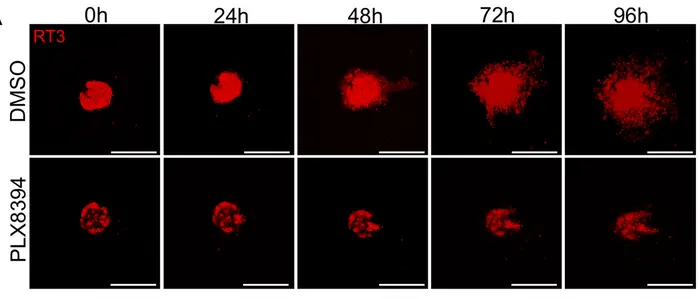By Joe Gorelick, MSN, FNP-C
An investigational anti-tumor compound may have efficacy against melanoma and squamous cell carcinoma (SCC), as well as lung cancer, researchers say. Plixorafenib (also called PLX8394) is currently in phase 2 clinical trials for melanoma and lung cancer.
Writing in the journal Oncogene, researchers show that plixorafenib, which was developed to inhibit the Ras signaling pathway, also blocked activation of the transforming growth factor-β (TGF-β) pathway. Both Ras signaling and TGF-b signaling have previously been implicated in the spread of cSCC. The compound interfered with growth of human cutaneous squamous cell carcinoma in mouse models.
The development of a targeted therapy to prevent metastasis of aggressive forms of SCC will be important to the field of dermatology, not to mention the need for additional therapeutic agents to treat melanoma. We are looking forward to additional safety and efficacy results in humans.
The research was funded by the Sigrid Jusélius Foundation, Jane and Aatos Erkko Foundation, and Cancer Foundation Finland. The study was conducted in collaboration with the InFLAMES Research Flagship.

The red dots in the picture are dyed cancer cells. The bottom row treated with Plixorafenib (PLX8394) shows that the drug significantly inhibits the invasion of cancer cells in the collagen gel. In the upper row, the control cells are moving without inhibition. The movement of the cells was followed with a confocal microscope for five days. Scale bar 500 μm.
CREDIT: Elina Siljamäki
